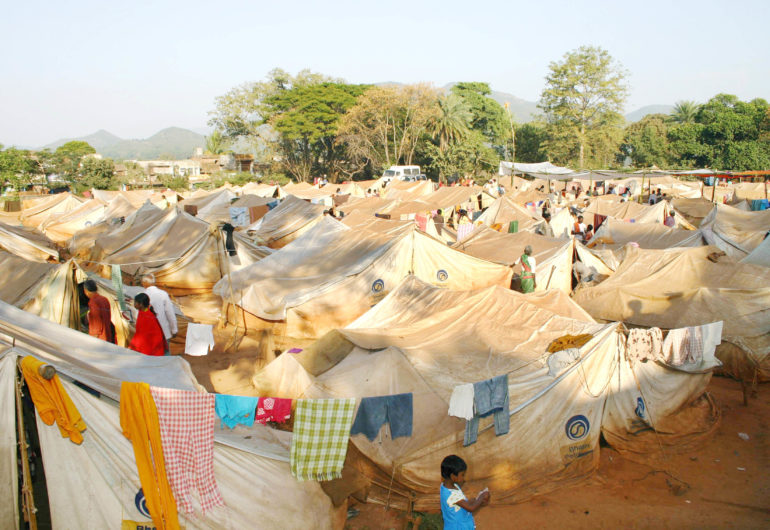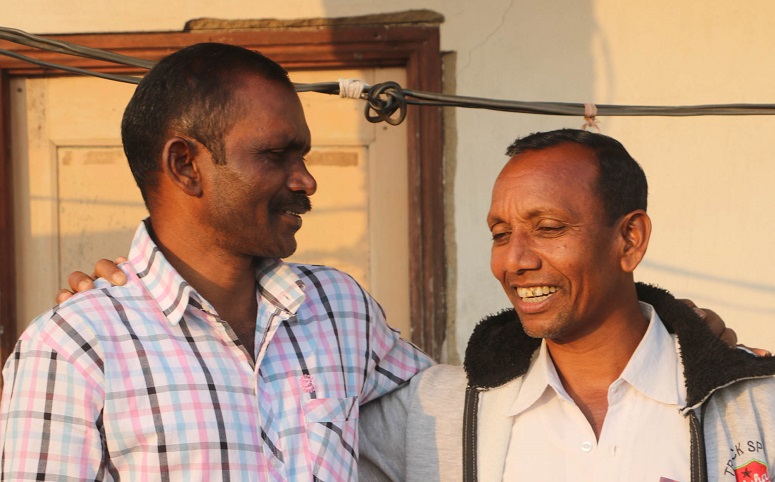
Ten years after the worst case of anti-Christian violence in India’s history, seven innocent people are still in prison, convicted of a crime that was the result of a larger political conspiracy, says Catholic journalist and activist Anto Akkara in an interview with Indian news platform The Wire.
Almost 100 Christians were killed in the Kandhamal district of Odisha, eastern India, in August 2008 following claims Christians were behind the killing of a Hindu leader, Swami Laxmanananda Sarawati. Three hundred churches and 6,000 Christian homes were also attacked, rendering 56,000 people homeless.
According to Akkara, who has led a campaign for the release of the seven men, their trial and conviction was “the result of an outlandish Hindu radical conspiracy rooted in the slain swami’s boastful claim that the United States, Europe, the pope and [Catholic politician] Sonia Gandhi had a vested interest in making Kandhamal a Christian region”.
Hindu activist Swami Agnivesh said last month that the 2008 murder of Swami Sarawati had been orchestrated by Hindu nationalists seeking to stir up violence against Christians. (Swami Sarawati had been a vocal critic of Christian evangelism.)
The violence that followed his murder came after the Hindu leader’s body was taken on a procession across Kandhamal.
“The long march with the dead body of the swami was responsible for triggering the communal flare up against Christians,” said Swami Agnivesh at an event in the Odisha capital, Bhubaneswar, on 29 August, warning that similar outbreaks of violence could follow in future if Indians continue to be divided along religious lines.

Seven Christians were charged and found guilty of the Swami’s murder, and in 2013 they were sentenced to life imprisonment.
In June 2015, two top police officials testified that the allegations were false, yet the Christians’ appeal hearings have since been repeatedly postponed.
The seven – three of whom are Dalits, the other four tribals – continue to maintain their innocence.
In August 2016, India’s Supreme Court Chief Justice said it was “very disturbing” that such a “large number” of the perpetrators for the devastating violence that followed the swami’s murder had not yet been brought to justice.
His comments came following an investigation into the massacre that showed that of the 827 criminal cases registered, 315 cases were not pursued, while of the 362 cases in which a verdict was given, only 78 trials resulted in a conviction. Some 6,495 people were arrested, but just 150 cases are still ongoing.
In December 2016 the chief minister of the southern Indian state of Kerala called for a fresh probe into the swami’s murder. Chief Minister Pinarayi Vijayan said Hindu mobs had been “incited to attack the Christians” and that the three months of violence that followed the murder had been orchestrated.
Compensation
Meanwhile the local community continues to struggle, with reparations from the government slow in coming.
In May this year, the High Court of Odisha ordered the disbursal of extra compensation awarded two years ago to the dependants of 14 Christians killed in the violence. It also ordered the government to make funds available to pay compensation to another 6,000 people who were either injured or whose houses were destroyed.
Following the High Court’s verdict, one of the lawyers, Pratap Chinchani, told World Watch Monitor pressure needed to be maintained on the Kandhamal district government to ensure that the compensation was distributed as the court ordered.